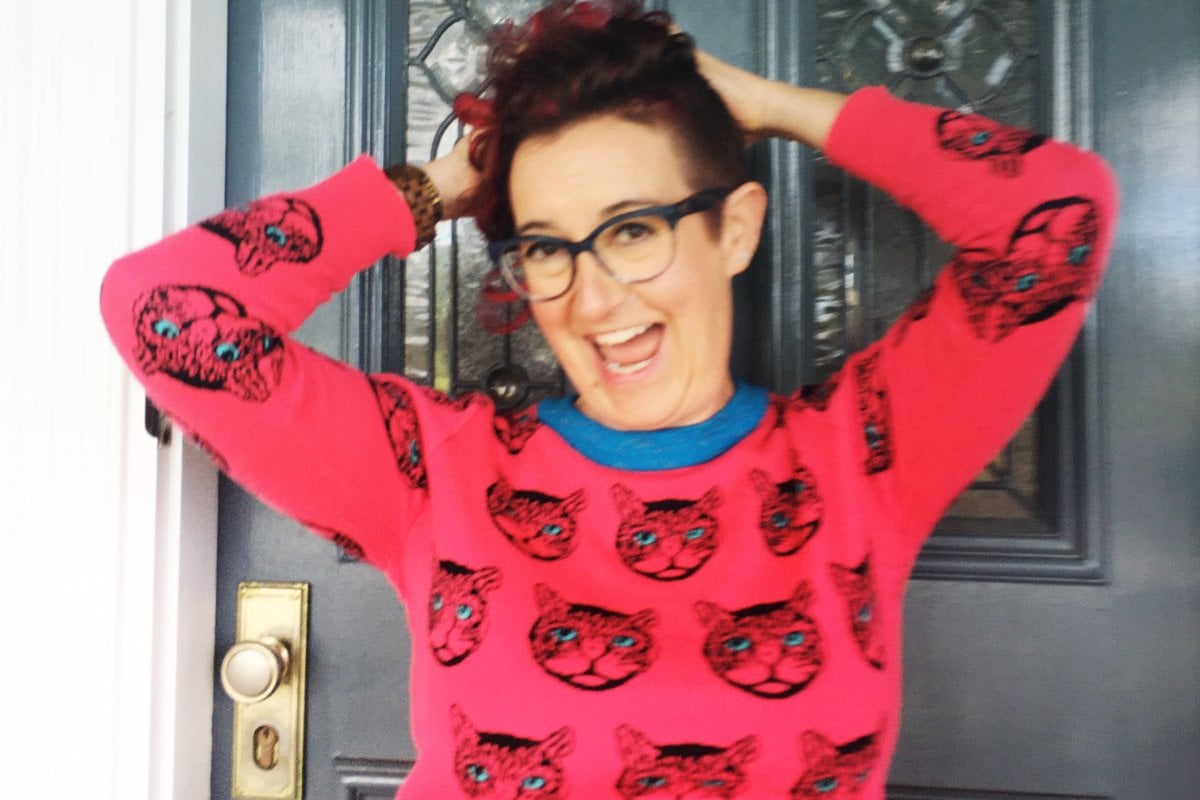
Leaving a friend’s house after more than a few drinks one afternoon, I stumbled into a rosebush.
It was just embarrassing. Until we discovered a thorn was embedded deep in my neck, right by the jugular.
Admitted to hospital for an overnight stay, the pain might have ended there - if it wasn’t for my discharge notes. In that unmistakable doctor’s scrawl, I clearly read the words: 'Pissed - fell into a rosebush.'
Watch: Your Body After 1 Year Without Alcohol. Post continues below.
It wasn’t exactly an unfair assessment. And it wasn't my first offence either.
I was the woman who had passed out cold in the back of taxis, while looking after my children. But, incredibly, none of that - not even those words from the doctor - prompted change.
Then, one night, as I tucked my 11-year-old into bed, she asked me to please leave my wine glass outside. Suddenly, none of it looked like fun anymore.
It occurred to me that my pre-teens were watching me ‘adult’ and framing up their own experiences of the world. And even they weren’t comfortable with it.
So often we talk about a playground 'mummy wine culture', but when that lifestyle ticked over into my own middle-age as my kids' headed into puberty, I realised I wasn’t just affecting my own life - I was responsible for another generation’s relationship with alcohol.

Top Comments